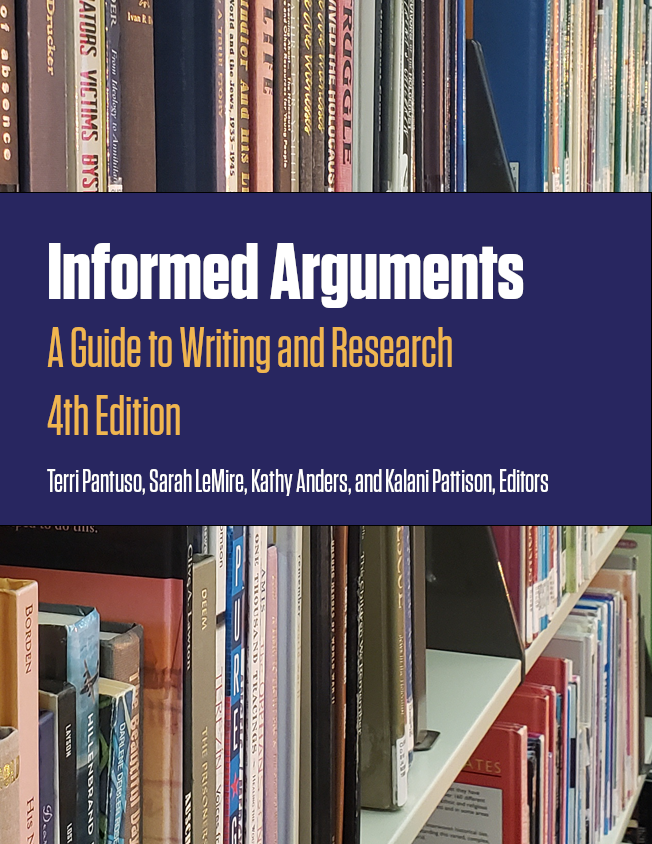Contents
Book Information
Book Source
This book is a cloned version of Informed Arguments: A Guide to Writing and Research by Terri Pantuso, Sarah LeMire, and Kathy Anders, published using Pressbooks under a CC BY-NC-SA (Attribution NonCommercial ShareAlike) license. It may differ from the original.
License
Informed Arguments: A Guide to Writing and Research Copyright © 2023 by Terri Pantuso, Sarah LeMire, Kathy Anders, and Kalani Pattison is licensed under a Creative Commons Attribution-NonCommercial-ShareAlike 4.0 International License, except where otherwise noted.


